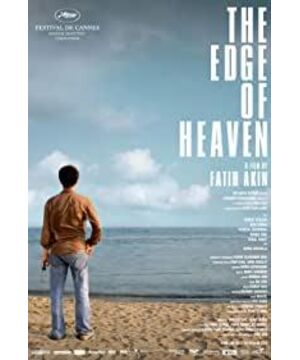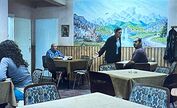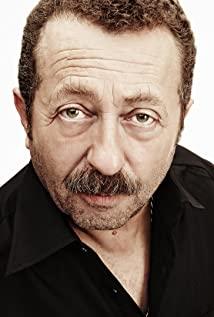Undoubtedly, on the other side of life, it belongs to this category of movies.
An excess that most people don’t know well, intertwined characters, obscure religious meaning, long shot rhythm, popular and slightly showy multi-stage cut starter, constantly imposed on the audience during the viewing process. All kinds of miscellaneous feelings make it always seem so illogical, so the director inadvertently complicates the film.
On the other side of my life, I did spend a lot of time thinking about the inner meaning of this topic and the infinite possibilities of the "other side". The final conclusion is that the other side of life is nothing but death, inspired by the scene of a German mother and a professor "toasting death" in a restaurant.
The film is cut into three relatively independent but intertwined passages, which tell about several states of existence:
one is the cautiousness of a Turkish immigrant trying to integrate into German society; one is about the loneliness of an old man whose desires have become powerless; one is about supporting his daughter. The helplessness of a mother who is a prostitute; the mania of a girl who rushes for human rights; the rebellion of a wealthy lesbian college student; and the forbearance of a mother who compromises step by step.
No matter what state of existence, there is no way to separate from the purpose of survival or better survival. Everyone's efforts are on one side of life, but the cruelty of reality easily brings people to the other side. Sometimes it is not necessary to seek death. Easy, but sometimes death is so sudden and hasty. Such is the loss of life in the film, it can be knocked down with a slap, it can be ended by a child playing with a gun.
Only when people who live on this side suddenly see the other side do they begin to reflect on the life on this side, that is, on life itself. People are often too numb to the life on this side, because for one person, the acquisition of life seems too simple, so only the imagination about the other side can stimulate the people on this side. Therefore, the three pairs of father and daughter and mother and daughter began to understand each other only after they were separated from each other. The professor forgave his father, and the German mother forgave the Turkish girl.
It is true that the well-being of the living is a great comfort to the dead, but why do you have to see blood to understand? You must know that if you understand each other earlier, you may avoid bloodshed.
The movie is cruel, but the movie is just a modification of the cruel life, but the movie gives people the opportunity to say "fortunately, this is not true".
Fess Akin, the Turkish-German director, has won numerous awards in his thirties. His camera language has a sense of calmness that does not match his age, and the theme is often a deep concern for human nature. The definition of human nature is too broad and grand, but The core is nothing more than a word of love. Love is an important force on this side of life, and perhaps the only thing that can be brought to the other side of life. Faith Arkin never gave up the theme of love, and in this film, he only used one dialogue to get to the theme, the sentence "My father said that even if I go against Allah, it will not hurt me" is the finishing touch. The pen is simple, clear and direct. In fact, the power of love may sometimes even God is powerless.
Talking about the technique of the film, there are too many three-segment or multi-segment forms. Ah Jin's handling is very skilled and sophisticated, the paragraphs are connected just right, and the interweaving of the characters is not too much. It seems to have a sense of independence and integrity.
The camera language of the film is the usual soothing of a literary film, but it is not as slow as a Japanese film. The rhythm of the plot and the rhythm of the shots are well matched. The concept is that the development of the plot is enough to catch people and the language of the shots is slow and just right. , not to fall asleep and not to get excited, the best feeling of watching literary films.
It focuses on depicting Turkey, the street scene and the ocean, as well as the iconic Turkish music. The actors' performances are real, simple and flamboyant. At the end, the picture on the poster is frozen, and the sound of the waves hitting the shore is so beautiful. .
View more about The Edge of Heaven reviews











